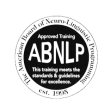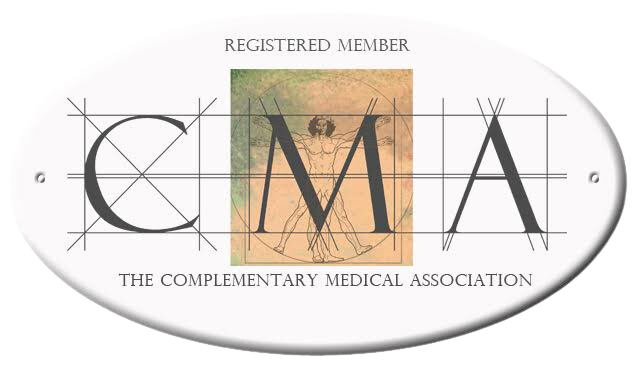
Career growth is a crucial aspect of professional development, and coaching has become an increasingly popular tool for individuals looking to advance their careers. By providing guidance, support, and accountability, coaching can help individuals achieve their career goals and reach their full potential. This article explores the benefits of coaching for career growth and how it can make a significant difference in your professional journey.
Introduction
In today’s competitive job market, career growth is more important than ever. Individuals seeking to advance in their careers often face challenges such as identifying their strengths, setting achievable goals, and navigating workplace dynamics. Coaching offers a personalized approach to overcoming these challenges, providing the support and guidance needed to achieve career success.
Understanding Career Coaching
What is Career Coaching?
Career coaching is a professional service that helps individuals clarify their career goals, develop action plans, and achieve their professional aspirations. Coaches work with clients to identify strengths, address weaknesses, and create strategies for career advancement.
The Role of a Career Coach
A career coach serves as a mentor and advisor, offering personalised guidance and support. They help clients explore career options, set realistic goals, and develop the skills needed to succeed in their chosen fields. Coaches also provide accountability, ensuring clients stay on track and make progress toward their goals.
Key Benefits of Coaching for Career Growth
Enhanced Self-Awareness
Coaching helps individuals gain a deeper understanding of their strengths, weaknesses, and areas for improvement. By increasing self-awareness, coaching enables individuals to make informed decisions about their careers and develop strategies for growth.
- Identify Strengths: Coaches help clients recognize their unique strengths and talents, enabling them to leverage these qualities for career advancement.
- Address Weaknesses: Coaching provides a safe space for individuals to explore areas of weakness and develop strategies to overcome them.
Goal Setting and Achievement
Career coaching assists individuals in setting clear, achievable goals and developing action plans to reach them. Coaches help clients break down larger goals into manageable steps, making it easier to track progress and stay motivated.
- SMART Goals: Coaches often use the SMART (Specific, Measurable, Achievable, Relevant, Time-bound) framework to help clients set effective goals.
- Action Plans: Coaches work with clients to create detailed action plans that outline the steps needed to achieve their goals.
Improved Communication Skills
Effective communication is essential for career growth, and coaching can help individuals develop these skills. Coaches provide feedback and guidance on improving verbal and non-verbal communication, enhancing interpersonal interactions and professional relationships.
- Active Listening: Coaching emphasises the importance of active listening, helping individuals improve their ability to understand and respond to others.
- Assertiveness: Coaches teach clients how to communicate assertively, expressing their needs and opinions confidently and respectfully.
Increased Confidence and Motivation
Career coaching boosts confidence and motivation by helping individuals recognize their potential and celebrate their achievements. Coaches provide encouragement and support, empowering clients to take risks and pursue new opportunities.
- Building Confidence: Coaches help clients build self-confidence by focusing on their accomplishments and strengths.
- Sustaining Motivation: Coaching helps individuals maintain motivation by setting realistic goals and celebrating milestones.
Career Transition Support
For individuals considering a career change, coaching provides valuable support and guidance. Coaches help clients explore new career paths, assess transferable skills, and develop strategies for a successful transition.
- Exploring Options: Coaches assist clients in identifying potential career paths and evaluating their suitability.
- Transferable Skills: Coaching helps individuals identify and leverage transferable skills for new roles.
Practical Steps to Get the Most Out of Career Coaching
Choose the Right Coach
Selecting the right career coach is essential for a successful coaching experience. Consider factors such as the coach’s qualifications, experience, and coaching style. It’s important to find a coach who understands your goals and can provide the guidance and support you need.
Set Clear Goals
Before starting coaching, take the time to clarify your career goals and what you hope to achieve through coaching. Having clear goals will help you and your coach develop a focused action plan and measure progress.
Be Open and Honest
Open and honest communication is crucial for effective coaching. Be willing to share your thoughts, feelings, and challenges with your coach. This transparency will help your coach provide tailored guidance and support.
Stay Committed
Commit to the coaching process and take an active role in your career development. Follow through on action plans, attend coaching sessions regularly, and be open to feedback and growth opportunities.
FAQs
What is career coaching, and how does it work?
Career coaching is a professional service that helps individuals clarify their career goals, develop action plans, and achieve their professional aspirations. Coaches provide personalised guidance, support, and accountability to help clients succeed in their chosen fields.
How can coaching help with career growth?
Coaching enhances self-awareness, assists in goal setting, improves communication skills, increases confidence and motivation, and provides support for career transitions. By addressing these areas, coaching helps individuals achieve career growth and reach their full potential.
What should I look for in a career coach?
When choosing a career coach, consider factors such as qualifications, experience, and coaching style. Look for a coach who understands your goals and can provide the guidance and support you need for career success.
How do I set effective goals in career coaching?
Effective goals should be specific, measurable, achievable, relevant, and time-bound (SMART). Work with your coach to set clear goals and develop action plans that outline the steps needed to achieve them.
How can coaching improve communication skills?
Coaching helps individuals develop effective communication skills by providing feedback and guidance on verbal and non-verbal interactions. Coaches teach active listening and assertiveness, enhancing interpersonal interactions and professional relationships.
Conclusion
Career coaching is a valuable tool for individuals seeking to achieve career growth and reach their full potential. By providing personalised guidance, support, and accountability, coaching helps individuals enhance self-awareness, set and achieve goals, improve communication skills, and increase confidence and motivation. Whether you’re looking to advance in your current role or explore new career opportunities, coaching can provide the support and guidance needed to succeed.






